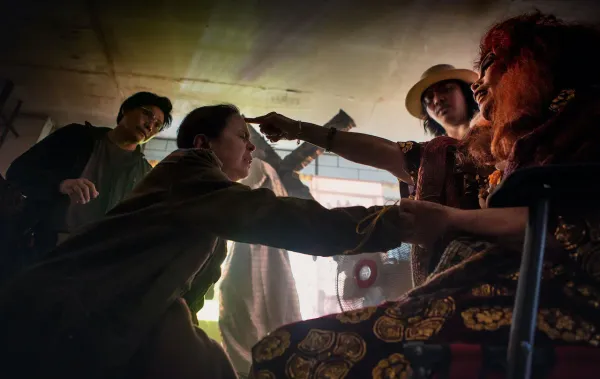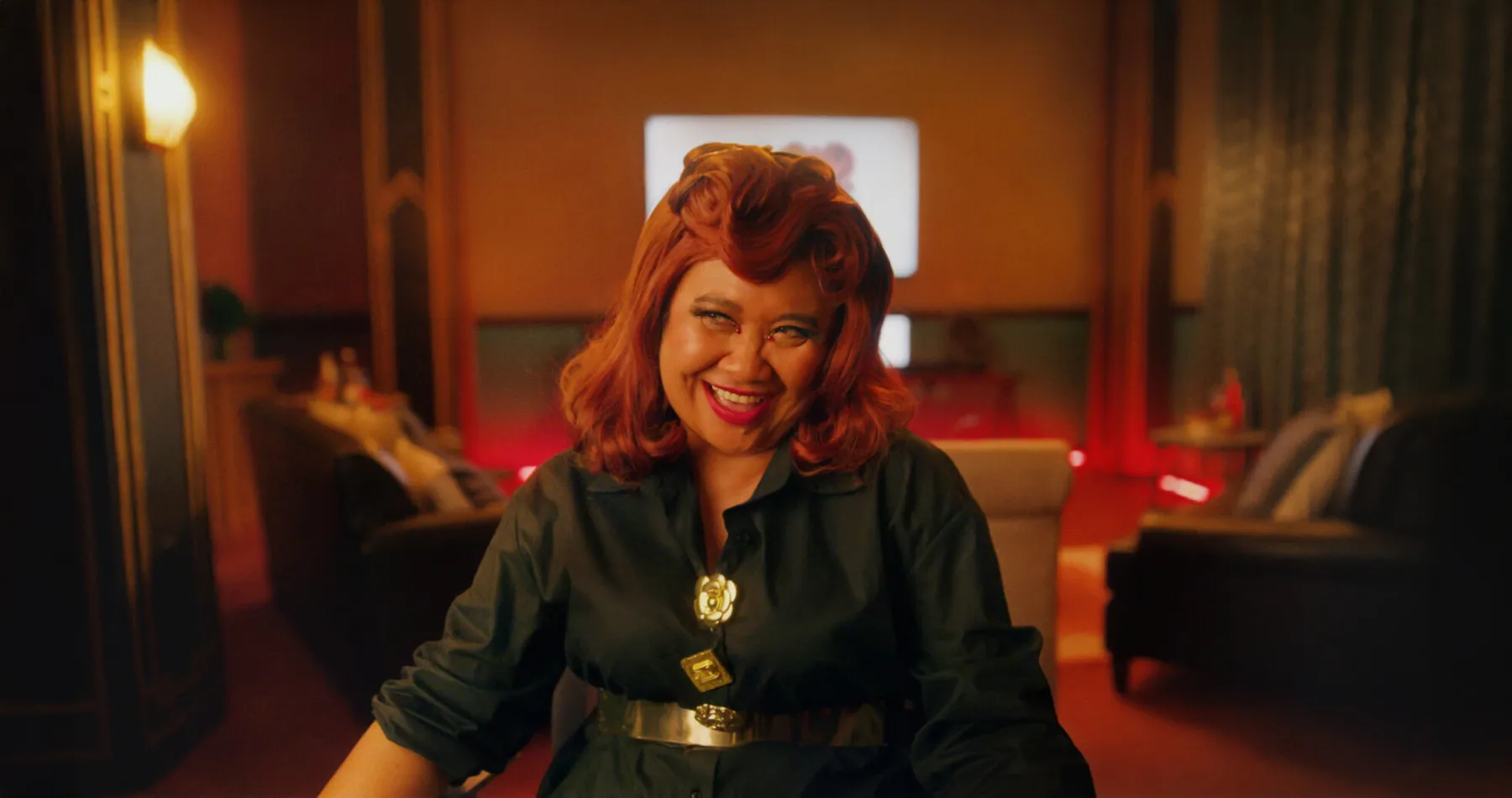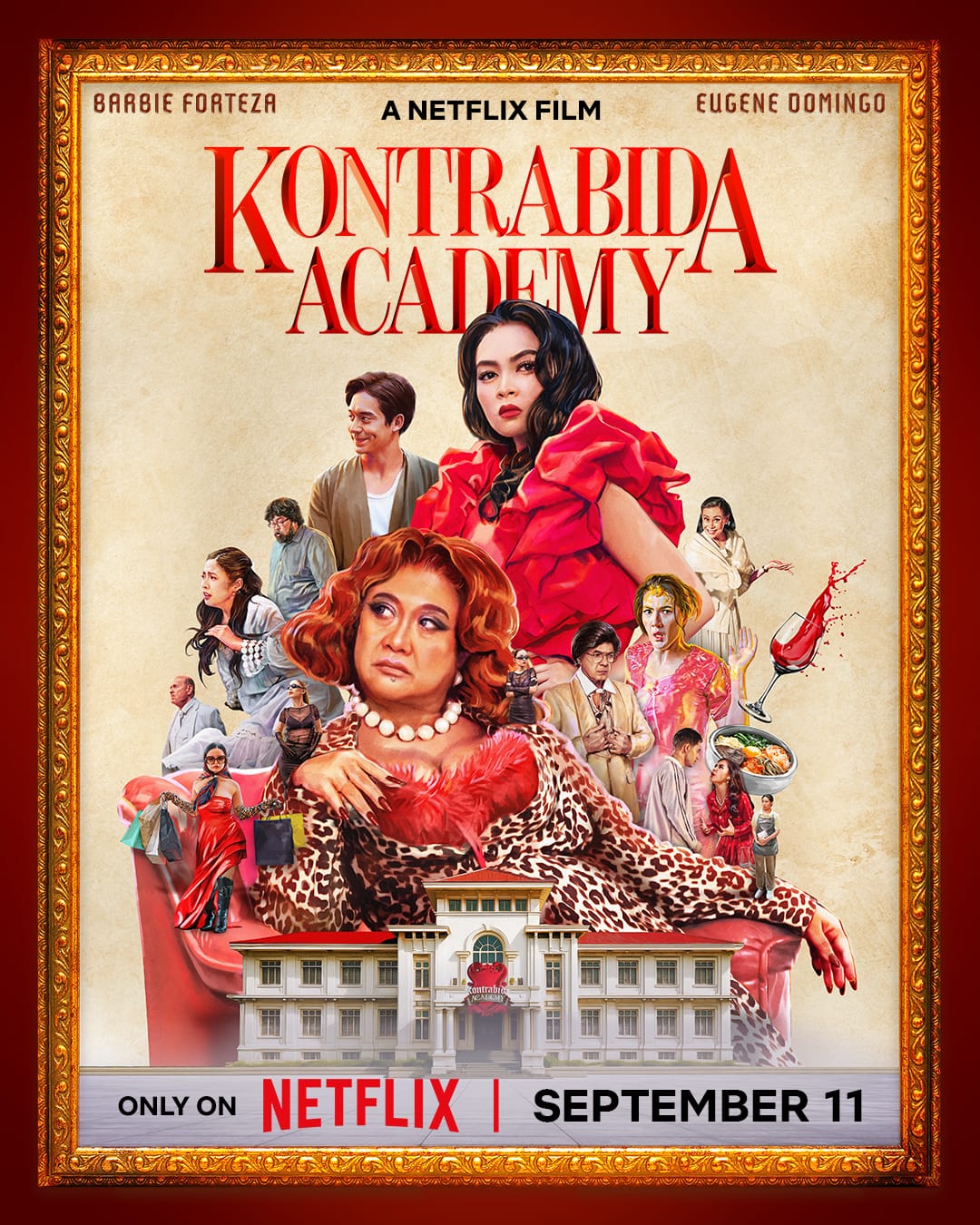
'7 Days of Hell' review — When wrongs fester
Seething rage curdles into a vengeful curse in Erik Matti's squirmy entry to HBO's underseen folk horror anthology from 2021, 'Folklore.'
Chris Martinez's new comedy thinks Filipinos' obsession with teleseryes isn't just an escape. It's a self-fulfilling prophecy.

NICE GIRLS DON'T WIN. That's the aphorism driving the good parts of Chris Martinez's Kontrabida Academy, a meta-satire that heralds the Laviñas and Selinas of Filipino films and teleseryes as baddies who've unlocked the cheat code of making life their bitch — all while living under a system that feels designed to make any do-gooder lose. It's a reheat of the rhetoric in A Very Good Girl (with the camp cranked up to nine) and, in more ways than one, the wicked stepsister to Marlon Rivera's seminal meta-comedy, Ang Babae sa Septic Tank.
Like in that film, Eugene Domingo carries the entire film on her fur-coated shoulders. But here, she has a worthy understudy: Barbie Forteza plays Gigi, a timid, kind-hearted breadwinner who's constantly taken for granted by people around her — her BNPL-obsessed mom, her cheating boyfriend, and her embezzling boss. Gigi is the perfect target in the eyes of Mauricia (Domingo), a teleserye villain who communes with Gigi through an LED television aptly called KontraVision.
Deciding she's taking no more of life's beating as a stereotypical protagonist, Gigi takes Mauricia's offer to enroll into the eponymous academy, where villains are taught their wicked and wretched ways. The film's best sequence is the kontrabida "masterclass," in which Filipino actors who played notable kontrabida characters demonstrated how to navigate life more easily when you sprinkle a bit of villainy on top. It's always right to be kind. —Mga wrong.
It underscores the bigger message of the film: Life's unfair, so why play fair? When life gives you lemons, don't make lemonades, squirt it right in life's eyes. It wouldn't excuse blowing up your sister and niece's passenger bus and ̶i̶c̶o̶n̶i̶c̶a̶l̶l̶y̶ maniacally laughing about it, but you get the idea. That teleserye protagonists stoically bear the brunt of the many evil-doings brought to their lives, the film tells us, becomes a kind of self-fulfilling prophecy. Mauricia can gaslight herself into thinking it's all integral to the delicate balance to appease The Sponsor — an in-universe stand-in for the financial powers-that-be, kind of like Mattel in Barbie — all she wants, but sentience or without, she's just as trapped in the clasp of a late-capitalist world.
And true enough, there's a turning point. It shouldn't take much more before we reach that point where we're arms wide, knelt to the ground, screaming skyward: "Matitikman n'yo ang batas ng isang api!" (You'll get a taste of the law of the oppressed.) Just look outside. Yet, the film ends with an attempt to mollify this sentiment. That there's always a chance at reform, and as such, we should leave space in our hearts for forgiveness.
Sure. That's fair. But the ending seems deluded in thinking that systemic exploitation can be easily reconciled with friendly chats over kwek-kwek and pares, that corrupt individuals can just sever their evil horns and become...good? For all its gabbing, Kontrabida Academy settles for such a rose-colored view, a teleserye ending, if you will. The nice girl does win and her ✨ 𝓼𝓮𝓭𝓾𝓬𝓽𝓲𝓿𝓮 𝓼𝓽𝓮𝓹𝓼𝓲𝓼𝓽𝓮𝓻 ✨ has to resign to oblivion.

dir. Chris Martinez | 2025 | Comedy | Netflix
When a mysterious TV transports her to a school for on-screen villains, a restaurant worker finds new purpose — and a way to get back at her enemies.